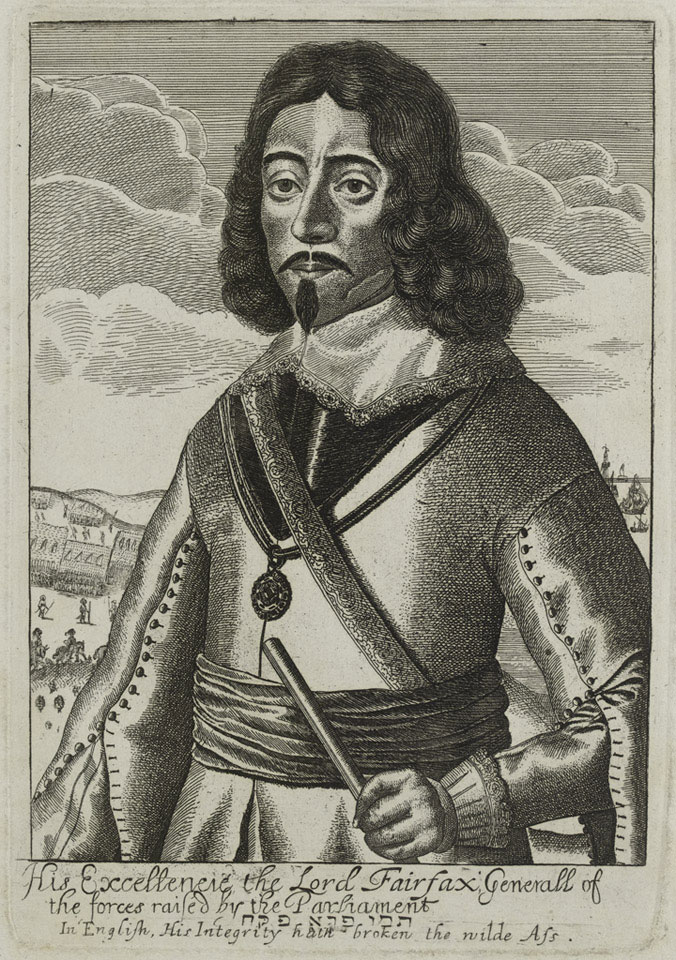Psalm 42: Contemplating Death

Psalm 42 appears to have held particular significance for Fairfax. It's one of the small selection of psalms that appears in the rather straggling collection of his draft work that is Additional MS 11744 (British Library) and it's there in fair copy in MS Fairfax 40, which contains the full Psalter (Bodleian Libraries, University of Oxford, fols. 1–2). It's also the psalm that, having called for his copy of the Bible, he read aloud just before he died.[note 1]
Psalm 42 is particularly appropriate to the moment before death as it talks—in strikingly physical terms—of the soul's longing to reunite with God. It also suggests the comfort that Fairfax (like the original psalmist) found in what he felt was a connection with God in times of trouble (when "waves encompass me about" and "Whilst I'm oppressed of my foe").
Occasionally, there are even traces in this translation of the old soldier. In the original Hebrew, the psalmist aligns the reproaches of his enemies with the breaking of his bones (42:10). The more faithful translation of the Psalm found in the Geneva Bible reflects that construction: "My bones are cut asunder, while mine enemies reproach me, saying daily unto me, Where is thy God?". Fairfax, however, knew too well the harsher facts of wars in which swords are "into ... bowels thrust".
Note 1. Mildred Ann Gibb, The Lord General a Life of Thomas Fairfax (London: Lindsay Drummond, 1938), pp. 255–56. [back to text]
- Publications
- 'Dating the Poetry of Thomas Fairfax in Add. Ms 11744 (British Library)' (Notes & Queries, 2023)
- Recorded Talks
- Blogs
- Why look at the poems of a general?
- Lockdown Poetry: Fairfax in the Interregnum
- Psalm 42: Contemplating Death
- More to follow!
- The Manuscripts
- Add. MS 4929 (British Library)
- Add. MS 11743 (British Library)
- Add. MS 11744
- Add. MS 25447 (British Library)
- MS 95041 (Clark Library, UCLA)
- MS Fairfax 38 (The Bodleian Libraries, University of Oxford)
- MS Fairfax 40 (The Bodleian Libraries, University of Oxford)
- MS Lt 105 (Brotherton Collection, University of Leeds)>
- The Editions


